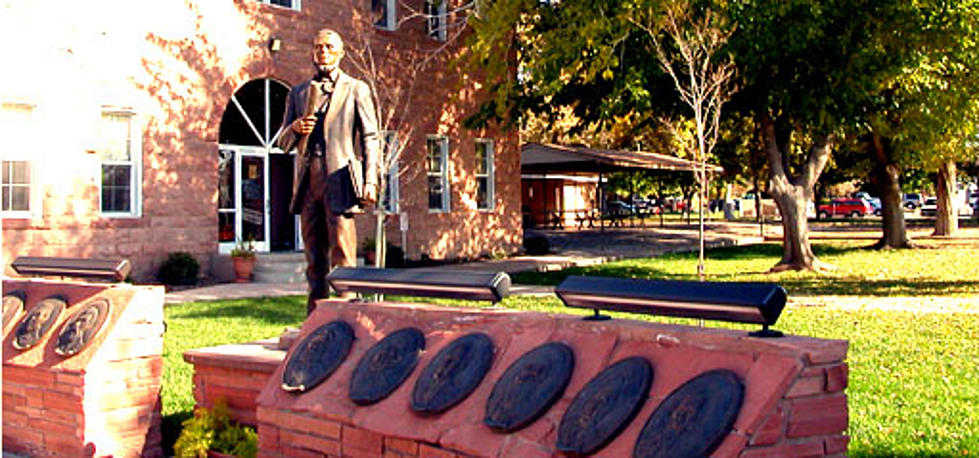
Southern Utah Is The Place For Starting A Business
Washington City, St. George and Cedar City were named the top three small cities in America for starting a small business recently by WalletHub.com.
Big deal, right? Top three cities in Southern Utah? Well, no. The top three small cities in Utah then? Uh, no. The top three small cities in the West. Um, nope.
See, the list took a look at the 1,334 small cities (25,000-100,000 population) in the entire United States, entered a complex 13-point algebraic equation that took into account business environment, access to resources and the cost of running a business, and came up with unbiased winners.
And Washington City won for the second year in a row.
“We could not be more excited to be ranked the No. 1 small city to start a business for the second year in a row," said Washington City mayor Kress Staheli. "The secret is out; Washington City is open for business. That entrepreneurial spirit is in our blood. Our pioneer ancestors were hard-working, resilient, and innovative.”
The study found out what we already knew -- Southern Utah is a progressive, hard-working region that executes the American Dream to a tee.
Along with Washington City, St. George (which barely qualified population-wise at 99,000) was second and Cedar City was third.
In fact, not surprisingly Utah did well and certain regions to our West (um, rhymes with Malifornia) were among the worst.
All totaled, Utah had six of the top 11 small business friendly towns on the list with Logan fifth, Lehi ninth and Eagle Mountain 11th, and the Beehive state had 18 of the top 100 towns listed. Florida also did well with 39 of the top 100 towns from the Sunshine State (although only two Florida cities made the top 10, South Bradenton at six and Fort Myers at eight).
The bottom of the list saw three California cities (Oakley ranked as No. 1,331, Saratoga at 1,333 and Cupertino at 1,334) and two Maryland burgs (Olney at 1,330 and Potomac at 1,332) bring up the rear.
Here are the qualifications used and point values:
Business Environment – Total Points: 50
- Average Length of Work Week (in Hours): Full Weight (~5.56 Points)
- Average Commute Time: Full Weight (~5.56 Points)
- Average Growth in Number of Small Businesses: Double Weight (~11.11 Points)
- Startups per Capita: Double Weight (~11.11 Points)
- Average Revenue per Business: Full Weight (~5.56 Points)
- Average Growth of Business Revenues: Full Weight (~5.56 Points)
- Industry Variety: Full Weight (~5.56 Points)
Access to Resources – Total Points: 25
- Financing Accessibility: Double Weight (~5.56 Points)
Note: This metric was calculated as follows: Total Annual Value of Small-Business Loans / Total Number of Small Businesses. - Investor Access: Double Weight (~5.56 Points)
- Human-Resource Availability: Full Weight (~2.78 Points)
Note: This metric was calculated by subtracting the “unemployment rate” from the “number of job openings per number of people in labor force.” - Higher-Education Assets: Full Weight (~2.78 Points)
Note: This metric is based on WalletHub’s “College & University Rankings.” - Workforce Educational Attainment: Full Weight (~2.78 Points)
Note: This metric measures the percentage of the population aged 25 and older with at least a bachelor’s degree. - Working-Age Population Growth: Full Weight (~2.78 Points)
Note: “Working-Age Population” includes those aged 16 to 64. - Job Growth (2021 vs. 2017): Full Weight (~2.78 Points)
Business Costs – Total Points: 25
- Office-Space Affordability: Full Weight (~6.25 Points)
Note: This metric measures the per-square-foot cost of commercial office space. - Labor Costs: Full Weight (~6.25 Points)
Note: This metric measures the median annual income. - Corporate Taxes: Full Weight (~6.25 Points)
Note: Data for this metric were available only at the state level. - Cost of Living: Full Weight (~6.25 Points)
The full list is here: Best Small Cities For Starting a Business.
Beware of These 50 Jobs That Might Vanish in the Next 50 Years
More From KDXU 890 & 92.5









